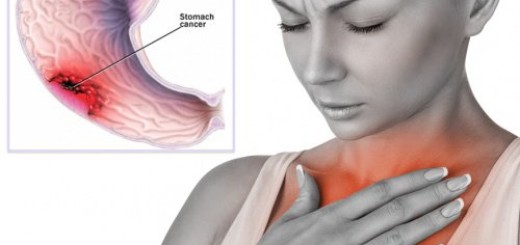10 Ways To Get Rid Of Chest Pain
Chest pain is a horror story regardless of its severity. The heart is a critical organ that is also extremely delicate at the same time. Thus, notwithstanding the severity of the cause of the symptoms, patients must exercise extreme care while dealing with such attacks.
There is no single particular cause for chest pain, however, thankfully, there are a set of common remedies that just about anyone could put to use right at the comforts of their home. We’ve jotted down ten of the most widely recognized remedies for you.
1.Garlic
Garlic helps prevent thrombus formation, reduces cholesterol and makes blood flow more smoothly in and around the heart. It is advised that you take 1/2 teaspoon maceration of 100 g of garlic with 400 g of wine before bed going to bed. This mixture has been around for ages and is considered one of the best remedies for chest pain.
2. Artichoke
Pour two tablespoons of dried leaves of artichoke in one liter of water and boil the resulting mixture. Cover it up with the help of a lid and let cool for a while. Consume the remedy in a small cup three times a day before meals. This helps in reducing the level of blood cholesterol, lowers blood pressure and prevents arteriosclerosis.
3. Willow Bark
Boil a teaspoon of willow bark in a glass of water for 5 minutes. Drink a cup of this remedy at least every two hours. Willow bark is known to have anticoagulant effects, preventing the formation of thrombi or clots. Moreover, it’s analgesic properties can help reduce chest pain.

4. Green Tea
Take green tea three glasses a day. Similarly to taking medication like lipitor generic that helps raise good cholesterol. drinking green tea lowers cholesterol, thins the blood, strengthens the heart and protects against angina or myocardial infarction. The best part is that this cure can be prepared within 5 minutes. You could choose to have it while you’re taking breaks from your office work, or even when you’re just relaxing. There is no limit on how many times you can drink green tea in a day. The more is the better as long as you are not preparing the tea by adding milk and sugar.
5. Almonds
Almonds are powerful seeds that are rich in polyunsaturated unsaturated fats – it’s almost if they’re from another planet! They act as a tonic for the heart, improving blood circulation and preventing the rise of cholesterol which helps prevent angina and other heart related diseases. Almonds are additionally contain potassium and magnesium in large quantities. Most heart patients often suffer from the lack of potassium and magnesium, hence almonds serve as a top level treatment for them.
6. Flaxseeds
It is recommended to consume one teaspoon of flaxseed oil on a daily basis due to one primary reason – flaxseeds are extremely effective in preventing arteriosclerosis and are instrumental in lowering cholesterol levels in the body. There’s no preparation required, just gulp some extract as you keep busy with your day.
7. Soy Lecithin
Consume 1 soy lecithin because it reduces cholesterol and helps break the plates of the arteries. Soy Lecithin contains high levels of choline – an ingredient that boosts the strength of the heart. Some of you might refuse this remedy due to allergic reasons. But the fact is that people are allergic to the Soy Protein itself, not the Lecithin. So you should find no harm coming your way when utilizing this cure.
8. Mullein
A special, mullein recipe that is extensively created for chest pain, has come off as a boon to millions of heart patients worldwide. First, boil and simmer 1/2 liter of water containing 2 handfuls of chopped mullein. Allow the jar to cool down and filter the solution and add 3 tablespoons of molasses (or honey). Now, drink 1 tablespoon of this syrup twice a day – once in the morning and again at night, right before you hit the bed.
9. Meditation
Any type of yoga exercises or even plain meditation, serve as the best for the alleviation of angina agony. It builds the oxygen and blood stream in the veins and heart and levels the heart rate. Meditation additionally unwinds body muscles and decreases anxiety and wretchedness that might be one of the reasons for your pain. Make it a point to practice the art of meditation as frequently as possible for good results.
10. Pomegranate Juice
Many high budget, high profile studies have demonstrated that the utilization of pomegranate juice may ease numerous cardiovascular maladies. One of the reasons for this is because it diminishes oxidative stretch, relaxing the organ and helping it pump better. The juice is also rich in mitigating properties that keep these chest pain and heart related diseases in check. Or, in other words, pomegranate is full of antioxidants, which are always good things to have. All things considered, drinking a decent measure of pomegranate juice may help your supply routes to open up and will clear it from having greasy stores.
Do’s & Don’ts
There are a number of recommendations that need to be followed if you have had the experience of chest pains in the past or if you want to prevent their occurrence in the future as well:
- Don’t smoke. Cigarette smoke compels your blood platelets to stick to one another, which can partially block the arteries, facilitating the onset of angina.
- Do monitor your cholesterol levels. The optimal levels are less than 5 mmol. If you find that your cholestoral levels are getting high, knowing that you can use something as simple as avacado oil to lower it could make such a big difference to your health.
- Don’t get stressed and nervous unnecessarily. Try to stay as calm as possible no matter what the situation is.
- Don’t consume foods containing saturated fats like fatty meat, butter, whole milk and dairy products. Salty foods that are high in sodium can be given a skip too.
- Do increase the consumption of fresh vegetables, oils (olive and sunflower), chicken and fish (sardines, mackerel, salmon, tuna).
- Don’t consume alcoholic beverages – they increase blood pressure. However, studies show that a small glass of wine (150 ml) along with your meals can be beneficial to stop chest pain.
Conclusion
While the aforementioned remedies are surely effective to relieve chest pain, serious cases should only be dealt with a hospital setting under the care of expert, professional cardiologists. If you’re not sure about what’s causing the pain, it’s better to get a diagnosis done. Remember, it’s always better to not treat yourself if you’re not sure about what’s causing the pain – you might just end up doing more harm.


